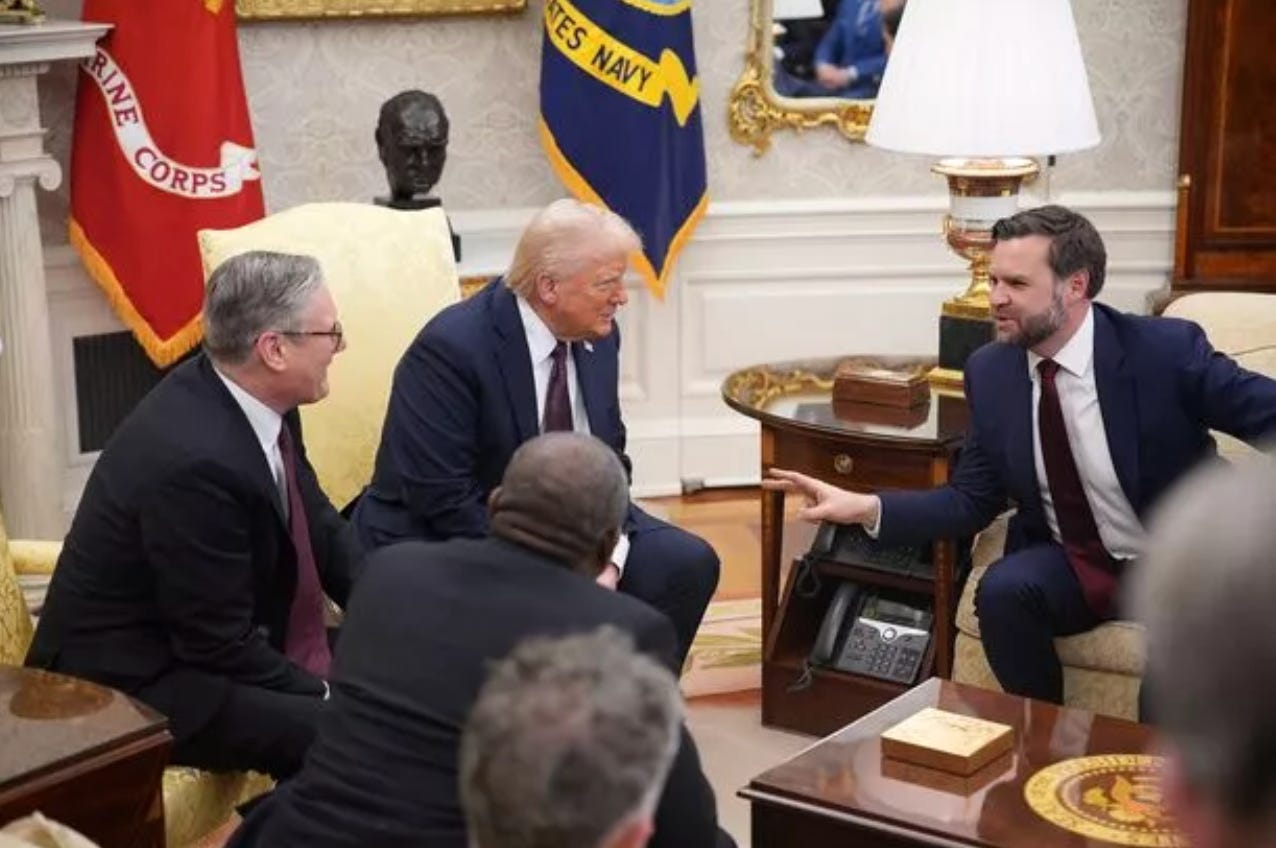The Special Relationship Under Trump 2.0 (Part II)
How The Conflict Over Free Speech Threatens the Special Relationship
Of all the likely political tensions between London and Washington over the next four years, free speech is in a category of its own. To the new American administration, this is a fundamental principle as well as a national security interest. As Vice President Vance told shocked European delegates to the Munich Security Conference in February, Washington’s top concern is “the threat from within” the Nato alliance posed by European governments’ escalating assaults on “democratic values”, in particular their efforts to censor speech, quarantine popular opposition parties, and annul elections.
This was aimed in part at the Brits. The birthplace of Magna Carta and the Bill of Rights is regarded by Trump’s team as having fallen far from its lofty heritage; these days, its reputation among right-wing Americans is more that of a woke “anarcho-tyranny” where violent criminals are released from prison and illegal immigrants are put up in hotels while law-abiding citizens are locked up for speech and thought crimes. JD Vance accosted the British government in his Munich speech along these lines, highlighting the case of Adam Smith-Connor, a 51-year-old veteran who was convicted two years ago for silently praying for his aborted son within a 150-meter buffer zone around an abortion clinic.
This article was first published on Courage.Media. You can read it on Ayaan’s new platform below:
Pro-life expression is far from unique in being targeted by the censors. Vague speech offences have proliferated in Britain in recent years, even as speech authorities like the Office of Communications (Ofcom) have become more powerful. Since 2003, the Communications Act has prohibited undefined “malicious communications” and made it a criminal offense to “persistently make use of a public electronic communications network for the purpose of causing annoyance, inconvenience or needless anxiety” – all highly subjective offences. Other prohibited communications include incitement, causing “non-trivial psychological distress” and “stirring up” racial or religious hatred. In practice these broad offences have resulted in thousands of prison sentences for social media posts and memes, personal insults, public signs, and, as Vance noted, even prayers. During the ten years before Starmer took office, over 96,000 cases were brought and 72,000 convictions obtained for racially or religious aggravated speech alone, as you can see below.



